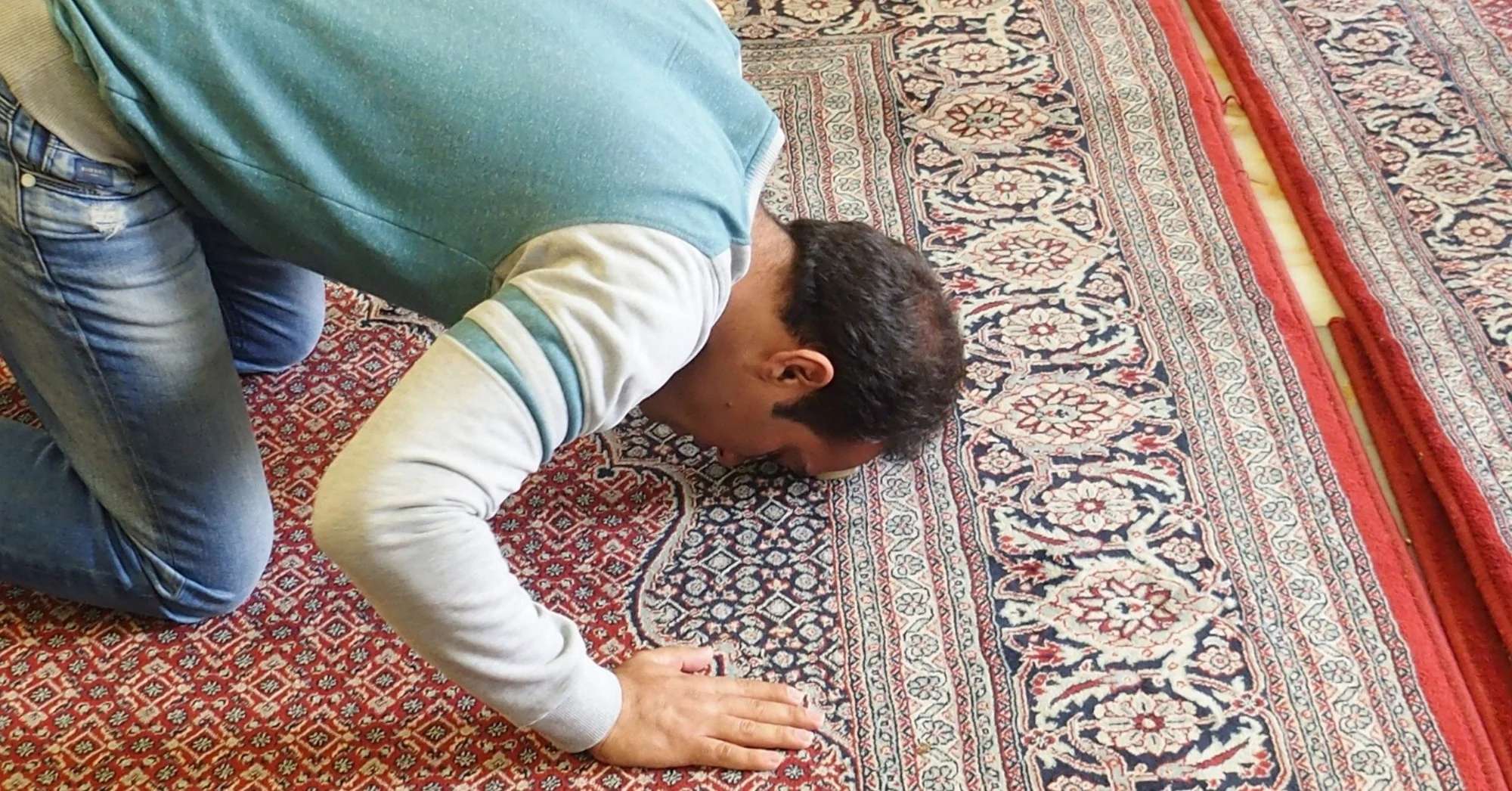The month of Ramadan has arrived once again! We hope that this easy guide will help you feel more confident in praying Tarawih at home and that we can emerge from this month stronger and more steadfast in our faith than ever before.
What are Tarawih prayers?

Tarawih prayers are non-obligatory prayers that are carried out during the month of Ramadan. Regarded as highly encouraged (Sunnah) they take place after Isyak prayers and can be done singularly or in a congregation, though more rewards are gained if you do them in a congregation!
There are different opinions on how many rakaat to perform for Tarawih prayers, some scholars saying 8, 20 or even 36. What we commonly use locally in Singapore is either 8 or 20 rakaat. Just because we have different arguments it doesn’t mean we avoid it completely. Strive for 8 rakaat at the very least. Any amount of units observed for Tarawih is still better than none. Go for it! Tarawih prayers are typically followed by odd-numbered Witr prayers too.
P.S. Find out more about the blessings of terawih and how to perform the prayers here or on MuslimSG!
How do I prepare for Tarawih at home?

Set aside enough space in a well-ventilated and cool area of your house, and make it clean and comfortable. Depending on how many people are in your household, you might need to shift some furniture around to have enough space for everyone.
If you don't have enough space to arrange your prayer mats, you can still pray with an Imam and makmum if you meet these requirements:
(1) the Imam leading the prayer is in front;
(2) male congregants follow, slightly behind the Imam;
(3) female congregants follow behind.
#HHWT Tip: Here are some ways you can turn your house into a masjid this Ramadan!
If you have young children, this is a good opportunity to introduce them to congregational prayers so that they will be more familiar with accompanying you to the mosque in the future.
Our writer Jinghan shares some tips here on how she introduced her daughter Masha to the mosque through congregational prayers at home, and why Ramadan is the best time for this! Put away or switch off your electronics to minimize distractions. So leave your handphones in another room, and switch off the TV or radio!
Be firm with yourself so that you can fully dedicate your attention and energy to achieving khushoo in your prayers, and rely on your household members to keep each other focused. While there's more flexibility with timings when you're praying at home, set up a general schedule with everyone else so that you won't have to pray too late into the night.
P.S. You can refer to this easy guide from MuslimSG! It covers the intentions to be said for both Imam and makmum, as well as different standing configurations.
What if I only know 2 surahs, or I'm not confident in my recitation of the Qur'an?

Credit: Jinghan
Many of us try to finish reciting the Qur'an during Ramadan through the Tarawih prayers or follow along with what the Imam recites at the mosque. So it can be daunting to think about how to know enough surahs to last through all the days of Ramadan, as well as embarking on recitations without guidance.
You can refer to MUIS' Contemporary Irsyad Series (Ramadan edition, available in Malay and English) for suggested surahs to recite for 8 rakaat and 20 rakaat prayers. If you only know a handful of surahs, you can repeat them throughout your prayers and continue to try and memorize more throughout the month.
Remember that Ramadan is a wonderful time for spiritual growth, so take this opportunity to learn and reflect on as much as you can! You can also refer to a mushaf (written copy of the Qur'an) while you pray if you have not memorized the respective surah yet.
As for reciting the Qur'an, as you'll be praying with your loved ones, encourage each other one and use this time together to not just recite, but discuss and understand the tafseer of the surahs too. ☺️
Are there any online classes I can listen to after my prayers?

Yes! After the prayers have been completed, you can also tune into web broadcasts of surah discussions or online kuliah by local mosques. In Singapore, many mosques have shifted their nightly talks or discussions online. Some of the mosques that are hosting Ramadan programmes include Al-Istighfar, Darul Makmur, and Masjid Sultan, all 3 of which have extensive programmes throughout the coming month so you can listen to them in the comfort of your own home. And that's it!
You can still have the blessings of Terawih prayers even if you're not in a mosque, and being able to pray alongside your family and loved ones can be a life-changing experience too. Though this Ramadan may appear different, we can ensure that the spiritual heart of it remains strong. Though we may not be able to go to the mosque, we can still cultivate the values of Ramadan within us.


